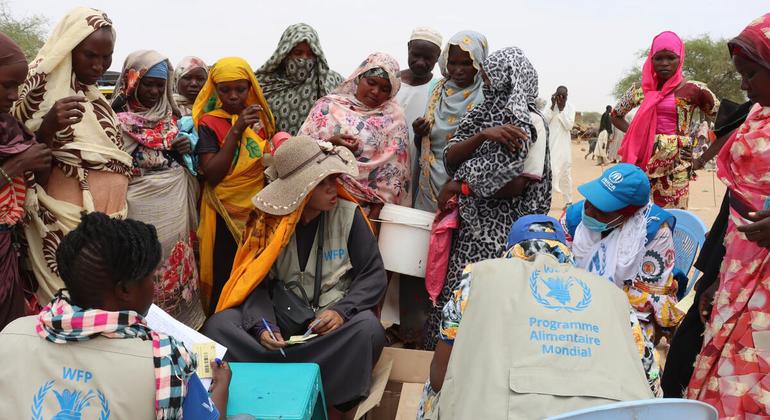The conflict in Sudan between the Sudanese Armed Forces and the paramilitary Rapid Support Forces has resulted in a humanitarian crisis, with over 1.8 million people fleeing across the border into neighbouring countries such as South Sudan, Chad, Central African Republic, Egypt, Ethiopia, and Uganda. Thousands more continue to arrive each day, with many people experiencing fear, loss, and devastation as a result of the war. The urban middle class in Sudan has been decimated, with professionals such as doctors, teachers, nurses, engineers, and students losing everything.
The impact of the conflict on civilians has been devastating, with over 13,000 people reported killed and many more injured. Attacks on civilians and conflict-related sexual and gender-based violence continue unabated. The destruction of the urban middle class has left many people without incomes, leading to warnings of worsening hunger and malnutrition in parts of the country. Access constraints, security risks, and logistical challenges are hindering the humanitarian response, making it difficult to deliver aid to those in need.
Refugee hosting countries such as South Sudan, Chad, and Ethiopia are struggling to cope with the influx of refugees from Sudan. South Sudan has received the most refugees, with about 640,000 people seeking refuge in the country. Chad has over 560,000 refugees, with many still living in overcrowded and unsanitary conditions due to funding shortages. Ethiopia, which already hosts a large refugee population, has seen over 50,000 new arrivals. The situation for women and children is particularly alarming, as many arrive in remote areas with little to no resources and are in desperate need of food, water, shelter, and medical care.
Despite the magnitude of the crisis, funding remains critically low for the humanitarian response in Sudan and the countries hosting refugees. Only 7% of the funds needed for the 2024 Regional Refugee Response Plan for Sudan have been fulfilled, and the response effort inside Sudan is just 6% funded. The UNHCR spokesperson emphasized the need for firm commitments from the international community to support Sudan and the refugee-hosting countries, ensuring that those forced to flee by the war can live in dignity. Psychosocial support for families who have experienced violence is also a priority, as many parents and children have witnessed or experienced appalling violence during the conflict.
In conclusion, the conflict in Sudan has led to a humanitarian crisis, with millions of people forced to flee their homes and seek refuge in neighbouring countries. The impact on civilians, particularly women and children, has been devastating, with many experiencing fear, loss, and trauma. The lack of funding for the humanitarian response poses a significant challenge, highlighting the need for greater support from the international community to ensure that those affected by the war can receive the assistance they need to rebuild their lives and live in dignity.









